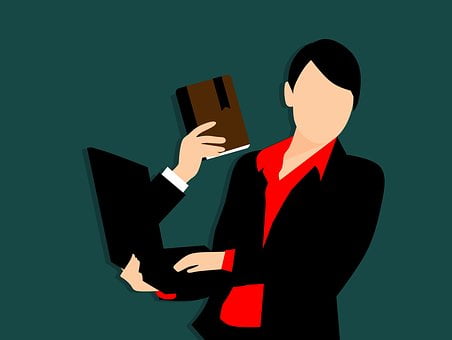To Improve Education: Government Should Focus more on School Teachers, not just University Lecturers

Today, majority are clamouring for improvement in the education systems in virtually all countries of the world. With most governments focusing more on tertiary education and forgetting the step before, there’s need to dig deeper so as to achieve the quality education so desired by all. So, here are reasons why the government should focus more on secondary school teachers and not university lecturers, in order to improve education.
The significance of qualified teachers in all institutions cannot be under-emphasized as teachers have good effects on the kind of learning students receive. This is to say that schools that fail to provide the necessary facilities for teaching will have difficulty to fully develop the academic and potentials in, their students.
Read more: Why Investment in Education SHould be a Top priority to the Government
Improve Education: Where the Government Comes in?
The government on its part has lots of responsibilities to perform to enable this potential acumen bloom as it is widely known that the youths of a nation are the future of such nation. Let’s also know that the quality of education does not only depend on the teaching performances, but also on the facilities put in place to enhance the teaching.
The common trend today is toward increasing intermediation by the state in pecuniary issues has brought about the concentration of responsiveness and argument towards where the new intrusion is anticipated and so far, the acceptance of whatsoever intervention has so far been considered as natural and unalterable. Nowadays, education is entirely overseen by governmental bodies or sometimes non-profit institution stimulating the situation to be gradually developed beyond the little explicit attention. The result so far has been unsurprisingly yielded the indiscriminate extension of governmental obligations. Outside of this, there are three major grounds which government intervention should be weighed on.
- “ordinary domination” or analogous inadequacy which makes operational rivalry awkward.
- On a second note is the existence of extensive general effects
- derived from an obscurity in the crucial aim rather than from the difficulty of achieving the feat.
All around the world, it is widely accepted to train the younger minds to do exploit than the older ones as it is believed the young ones have much strength to achieve their potentials if properly tutored and can derail if reverse is the case, hence, the need to concentrate more on the younger people’s education than the tertiary aspect.
Read also: https://gopius.com/blog/getting-accredited-online-degree-in-education/
Why Government should focus more on Secondary School Teachers and not University Lecturers
The question that comes to mind after reading the above paragraph is “why?” Why should preferred attention be given to secondary education involving their teachers rather the tertiary instructors? Why should the government provide the facilities to the segment of education where the young ones are just developing to adulthood rather than the fit-to-face the world adult? Why this, why that…
Just relax and follow swiftly as you are taken around the world of exciting educational features that explains why the government should be actively involved in the secondary schools’ business rather than the tertiary.
A Cross-Path to the other
It is a common knowledge that it is from a secondary school that a student moves on the University. So, therefore, it is very important that they are properly groomed, retouched before proceeding to the institution of higher learning. And who is responsible for this grooming? It’s the teacher not the University lecturer who might not even notice the student unless he/she is a course rep. or let me say have a common assignment that could bring them together. The government has to, therefore, provide the necessities to a secondary school teacher so he/she can properly groom the students well before handling them to the more exposed world of tertiary learning.
Familiarity to understand student’s weakness:
There is need to establish a perfect connection between teachers and students in our various secondary schools to perfect a lasting value and increasing recognition not minding their similarities and focus more on the effectiveness. This part is also necessary for university undergraduates but not as it is for secondary school as these set of people still have a feasible mind that can be daunted if not properly considered so, therefore; there is need to create facilities for the teachers to be able to guide them through.
Demographics is more effective in Secondary Schools
Teachers in the secondary schools setting need extra commitment in making the demographics of the school as the population has changes sporadically. In this vein, the government needs to monitor them closely so that they can focus and optimize the given resources significantly to meet the student’s need. At this stage in the student’s life, they tend to be more anxious than ever, they want to be part of everything and know how they work, why they work like that if the pattern of how the given hypothesis can work if taken to another form and so on.
For secondary school teachers, demographic change has not only the student’s composition but also the materials, time and curriculum and if they are not properly monitored, they likely slip off the grip and this will surely affect the students so positively. This is a different kettle of fish entirely for University lecturers as the students themselves are prepared adequately even beforehand the essentials through their own tactical research work. All they need do is submit the assignments to the lecturers and work on how to do better next time in the project.
Secondary School Teachers are lower in Standards than the University Lecturer
In some cases, secondary school teachers could not be real players in the consideration because most of them did not have the knowledge base from which to make decisions about what to teach. A recent survey shows that about 457 teachers in particular secondary school in the country have about 23 percent of teachers that had never taken the course they claim to be teaching, how then did they come into the teaching system?
Surely, some top government officials must have helped them gotten the job even when they know they are not qualified to take on such jobs. The government should not stand by and watch this ghost-workers take on the teaching jobs as it obvious that there are thousands of such workers in more of the secondary school educational system setting. This can hardly be found in the tertiary institution background as the screening of lecturers are really tasking and very well scrutinized be it the teaching or non-teaching staff.
Pattern of teaching
Some basic school teachers integrate some of the new structure and methodology of the intermediate school model. Although some have found the concepts of cooperative learning and alternative valuations too difficult to implement in a system that has as its quota of success high scores during college admissions. Many university faculties have been linked with high school teachers in the development of advanced-placement courses and preparation for gifted and talented programs, where it is recognized that the teacher’s content knowledge is essential. But in the real case, content understanding is indispensable for all teachers.
Secondary school teaching varies in ways but there are common approaches that explain from state to state. Children from different ethos don’t differ in common developmentally. The government, therefore, need to understand some basics before taking a leap so they don’t feel grudgingly pressurized.
What the Government needs to do
1. Accept the need for quality education
They need to accept that the country needs a high-quality education “system” rather than a nibbling order of colleges. This concerns the local authorities mostly as they would be the microscopic observer to the higher government. Links and transitions between the phases are crucially important.
2. Change Focus
They also need to Realize that, if the desire to reduce the achievement gap between the advantaged and the disadvantaged is genuine, those who currently gain the least from education need to receive the most resources and have the best teachers.
3. Teachers are the solution
The government also need to grasp that high school teachers are the solution, not the problem. This means the profession enticing, and keeping, the most talented and the best-motivated people which also means the government consenting to teacher’s reasonable autonomy in how they teach.
4. Review Assessment
Make a mandate to restore assessment and allow the vital role in teaching and learning, and also outlaw the devastating and discordant confederacy tables.
5. Improve on Inspection
Restrict inspection to confirming that deteriorating institutions are acknowledged and value-added rather than endeavoring to sort all schools and colleges into finely congregated classifications.
On a final note
Let us be certain that such changes will not be easy to make, though not impossible, as succeeding governments have groups with conferred interests in controlling schools, making money from servicing them or enjoying privileged access to the best provision. The above-listed points cannot, by themselves, ensure a high-quality system in a just society but would require lots of pressure from the citizens. With that, the outcome is more likely to be positive.







